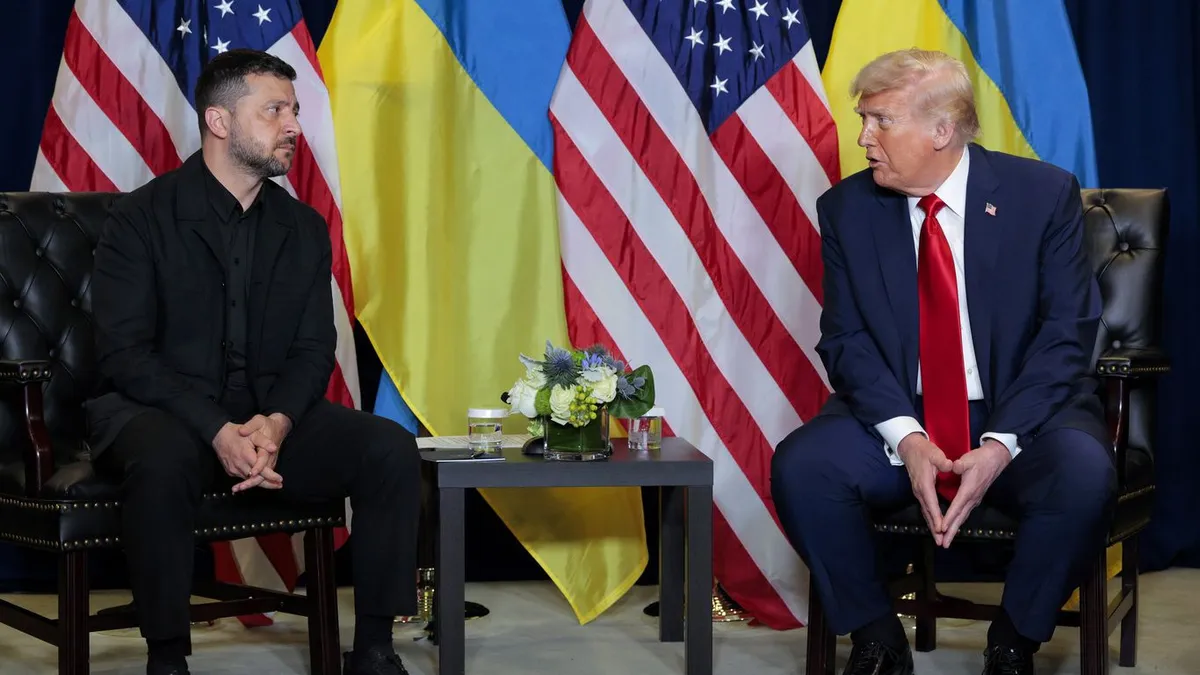
President Trump's stunning reversal on Ukraine has largely gone unnoticed within MAGA circles, highlighting a growing sense of fatigue and indifference following eight months of unsuccessful efforts to conclude the ongoing war. This shift is significant as it shows how the priorities of MAGA supporters have evolved amid domestic crises, overshadowing foreign affairs.
The current focus of the MAGA movement is primarily on domestic issues, including the aftermath of Charlie Kirk's assassination and a recent shooting at an Immigration and Customs Enforcement facility in Dallas. Despite these pressing concerns, Trump's new stance on the Ukraine conflict — suggesting that Ukraine could reclaim all its lost territory and potentially seize Russian land — is a remarkable departure from his earlier views, especially at the beginning of the year.
Traditionally, Trump and his base have shared a common perspective on Ukraine, arguing that Kyiv should have pursued a peace deal earlier, accepted territorial losses, and ceased expecting direct U.S. aid. This viewpoint was notably showcased during a heated Oval Office conversation in February when Trump bluntly told Ukrainian President Volodymyr Zelensky: "You don't have the cards."
However, Trump's recent comments mark a significant departure from that narrative. He asserted that U.S. financial assistance would not increase, with Washington opting instead to sell weapons to NATO allies, allowing them to operate as they see fit. More strikingly, he broke away from his previous stance on territory and peace negotiations, proclaiming that Ukraine could regain its territory in its entirety and perhaps even expand beyond its original borders.
Typically, issues related to American foreign entanglements ignite passionate responses within the MAGA community. Yet, a vocal segment of this movement has adopted an anti-Ukraine sentiment. Despite the significance of Trump's announcement, MAGA print and online outlets have relegated coverage of this development to the lower sections of their homepages. Additionally, the right's expansive social media platforms and early Wednesday podcasts showed minimal engagement regarding Trump's shift on Ukraine.
Sources within the MAGA sphere have expressed frustration over the ongoing war, particularly as both Ukraine and Russia have previously dismissed opportunities for peace talks. Raheem Kassam from The National Pulse commented on the general apathy surrounding Trump's recent statement, noting, "With complete and total apathy at this point, much like most of the world." He added that the current situation resembles a "pox on both their houses," highlighting the lack of desire for resolution from either side.
Steve Bannon, a prominent MAGA podcaster and thought leader, echoed this sentiment, suggesting that the muted reaction indicates a belief that Ukraine is a politically toxic issue for Trump. He remarked, "If he said this in the first weeks of his administration, heads would have blown up." This reflects a recognition within MAGA that Trump's rhetoric may not lead to increased American involvement in Ukraine.
While some members of Trump's coalition may support his views, others have expressed their frustration regarding his announcement. Josie Glabach, a right-wing influencer known online as The Redheaded Libertarian, articulated her concerns by stating, "Anytime Trump changes his position and makes a statement like today, it feels like we're resetting and even farther away from an end to this war."
In summary, Trump's unexpected shift on Ukraine underscores a complex reality: as MAGA supporters grapple with domestic issues and growing disillusionment over the war, the once fiery response to foreign policy changes has transformed into a notable apathy. This evolution reflects the intricate balance of priorities within the movement and poses questions about the future of U.S. involvement in international conflicts.